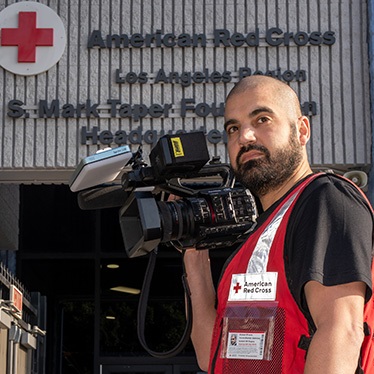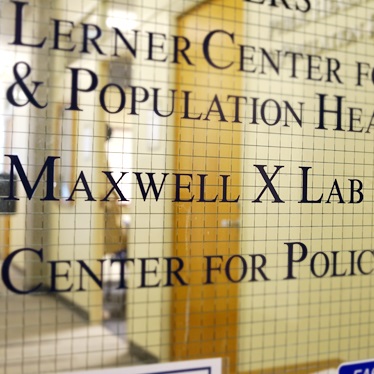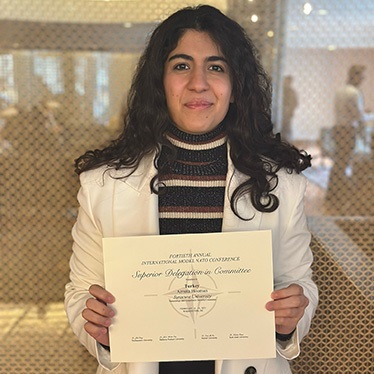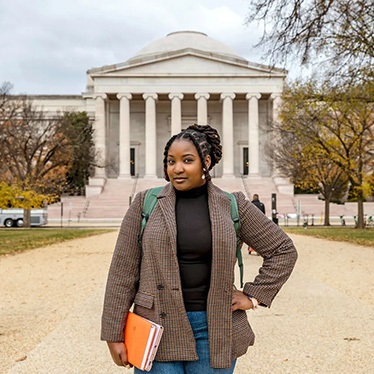Prepare for crises, speakers tell Humphrey Fellows
April 19, 2021
 The global
pandemic kept Humphrey Fellows from gathering at Syracuse University for an
annual workshop on crisis management. But a virtual program taught lessons
relevant to the ongoing public health crisis as well as strategies to prepare
for future crises.
The global
pandemic kept Humphrey Fellows from gathering at Syracuse University for an
annual workshop on crisis management. But a virtual program taught lessons
relevant to the ongoing public health crisis as well as strategies to prepare
for future crises.
“While the exact circumstances vary, there are patterns in the way crises unfold. The goal of the workshop was to learn about these patterns and explore best practices in crisis management,” said Keli Perrin, faculty lead of Leadership and Governance During Times of Crisis, sponsored by Syracuse University’s Maxwell School and administered by Executive Education. Perrin is managing director of the Institute for Security Policy and Law, a partnership between the Syracuse University College of Law and the Maxwell School.
The workshop, the ninth Maxwell has hosted, took place in nine two-hour remote sessions over three weeks rather than one week. Twenty-one Humphrey Fellows representing 19 countries and 11 host campuses participated in the program. Fellows reflect a wide range of academic interests, including education, media, health care, economics, politics and public policy. They are among the year’s approximately 127 scholars from 81 countries.
“The workshop was not only an opportunity for Humphrey fellows to gain perspective on leadership during crisis from faculty experts with real-world experience, but also to learn from each other, which is especially critical during this program year during the pandemic,” said Margaret Lane, director of Syracuse University’s Hubert H. Humphrey Fellowship Program. “Providing a platform for them to connect with fellows at campuses across the country and discovering key skills regardless of the crisis is immeasurably beneficial.”
Speakers included Bruce Dayton, associate professor, Peacebuilding & Conflict Transformation, School for International Training in Brattleboro, Vermont; Stephen Haggerty, mayor of Evanston, Illinois, and a member of Maxwell’s advisory board; and Margaret Hermann, professor of political science and director of Maxwell’s Moynihan Institute of Global Affairs.
Sean O’Keefe, University Professor and Howard G. and S. Louise Phanstiel Chair in Strategic Management and Leadership at Maxwell, shared insights from his experience as NASA administrator. Also participating were Michael Meath, former interim chair and professor of public relations at the Newhouse School, and an expert on crisis communications; Hon. James Baker, professor of public administration and international affairs (by courtesy appointment) and professor of law, and an expert on national security; and Thomas Dennison, professor of practice emeritus of public administration and international affairs, and an expert on public health.
The workshop included case studies that demonstrate real-world crisis management strategies. Strategies included preparation, media relations on sensitive issues, tracking issues that may evolve into crises, and the importance of reputations and trust.
Doreen Bangapi Mwanyama of Tanzania, a Maxwell Humphrey Fellow, said the workshop underscored the importance of developing a risk management plan. “I also learned the importance of having role models for different kinds of crises because they help you think of what they would do in the same situation,” she said.
Bangapi is head of research and learning for BBC Media Action in Tanzania. She hopes to use her fellowship experience to use data and policy analysis to improve adolescent health and increase opportunities for farmers.
She came away from the workshop with more practical lessons. “It is important to be able to manage stress, because some levels of stress are important for enhancing performance, but too much stress is bad for performance,” she said. “Effective communication in crisis is vital to avoid fake news and misinformation.”
Bangapi appreciated the workshop’s interactive structure and the chance to network with fellows from other campuses. “So many opportunities came with every morning breakout room,” she said. “I got to meet fellows from other continents and countries and other fields of study and learn from them.”
The workshop prepared her to manage crises. “I now understand that not every leader is a good leader during crises and that some leaders emerge during crisis and others fall,” she said. “It takes good crisis management skills to be a good leader during a crisis.”
04/19/21
Related News
School News

Mar 12, 2025
School News

Mar 7, 2025
School News

Mar 4, 2025
School News

Feb 28, 2025